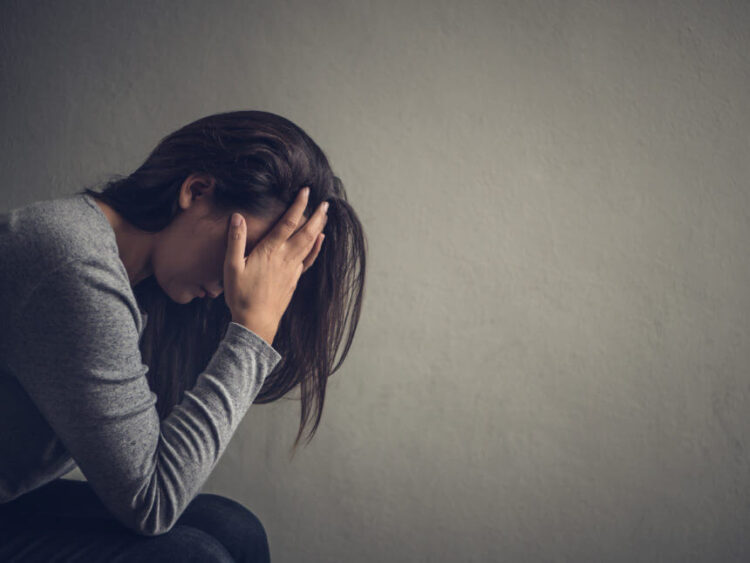By Charlotte Webster-
Individuals who suffered sudden and massive drops in household income during the pandemic crisis suffered the sharpest increases in mental illness, according to a major survey.
The survey said that mental health worsened across all groups during the period, those forced to become newly dependent on universal credit and self-employment grants experienced the most dramatic and ongoing decline in mental wellbeing.
Researchers also made reference to pre-pandemic research conducted a few years earlier, to show how the effects of stringent restrictions and income losses worsened the mental well being of various groups of people.
Living in a low-income household or with a parent in receipt of income-related benefits was associated with higher rates of mental health issues , according to the survey. There was no significant association with neighbourhood deprivation area.
Children with poor general health, special educational needs, or children with a parent with poor mental health or in receipt of a disability-related benefit, were more likely to have a mental
health disorder than other children.
Researchers also said that those aged 14 to 19 who identified as lesbian, gay, bisexual or as another non-heterosexual sexual identity were more likely to have a mental health disorder (34.9%) than those who identified as heterosexual (13.2%). In terms of behaviours, noting the study does not prove causal links the data showed that those aged 11 to 19 with a mental health disorder spent more time on social media and were more likely to have been subjected to cyber-bullying.
Those aged 11 to 16 with a mental health disorder were also more likely to have taken illicit
drugs, to drink alcohol .
Researchers revealed that some 42% of this group – called “help-seekers”- by researchers – reported being in poor mental health in January, up 13 percentage points compared with before Covid, suggesting they continued to struggle with the overnight loss of work and income.
“The pandemic took people who had been for decades living on a comfortable income into a totally different world overnight. The shock of that sudden drop towards the poverty line was enormous,” said Neil Smith, head of analysis at the National Centre for Social Research (NatCen), which carried out the study.
Alarming rates of mental ill health were also recorded in a second group, categorised as “multi-strugglers”, and defined as having multiple longstanding financial difficulties. More than half experienced mental distress in April 2020 during the first lockdown, falling back to still-high pre-pandemic levels (39%) by January.
The 2017 survey highlighted young women aged 17 to 19 as a “high risk” group in relation to poor mental health with nearly one in four (23.9%) having a mental health disorder. Just over one in five (22.4%) had an emotional disorder and one in two (52.7%) young women with
a disorder reported having self-harmed or made a suicide attempt..
In the 2020 study, one in six (16.0%) children aged 5 to 16 had a probable mental disorder during the pandemic, compared with one in nine (10.8%) in 2017. The rates rose for both boys and girls.
Young women (aged 17 to 22) had the highest rate with a probable mental
disorder rate of 27.2%, compared with 13.3% of young men The study found that those with a probable mental disorder were more likely to feel the national lockdown had made their lives worse.
Beneficiaries Category
The lowest rates of mental illness were recorded in the “beneficiaries” category – people whose incomes increased during the pandemic – and the “undisrupted”, those whose incomes were unaffected, often pensioners.
It revealed that most help-seekers and multi-strugglers were not furloughed but on universal credit or the self-employment income support scheme.
People who were furloughed typically lost 9% of their income, while those on universal credit saw their income dip by 47%, according to estimates by the Resolution Foundation. Even with the £20 a week uplift for universal credit, recent research suggests the benefit fails to cover many new claimants’ basic living costs.
Although the prospect of a post-lockdown return to work may lead to an improvement in mental health levels, Smith warned policymakers against a cliff-edge removal of furlough and the universal credit top-up this autumn, saying they may have prevented even greater levels of mental distress.
He said: “We can observe increased mental distress across the population as a consequence of the pandemic, but people faced with growing financial insecurity have been far harder hit than the financially secure. With the economic fallout of the pandemic expected to continue, the mental health of people relying on employment and benefits support during the crisis should not be ignored.”
The NatCen study was based on data collected from over 12,000 UK adults between April 2020 and January 2021.
A government spokesperson said: “We are committed to supporting everyone’s mental health and well-being. We are expanding and transforming mental health services in England, backed by an additional £2.3bn a year by 2023-24 and throughout the pandemic mental health services have been open.
“For those with severe needs or in crisis, all NHS mental health providers have established 24/7 urgent mental health helplines and our mental health recovery action plan – backed by £500m – will ensure we offer the right support over the coming year to help people with a variety of mental health conditions. We would encourage anyone who may be struggling with their mental health to come forward for help.
“Hundreds of billions have been spent to help those most in need throughout the pandemic, safeguarding jobs, boosting welfare support by billions, raising the living wage and introducing the £269m Covid local support grant to help children and families stay well-fed.”




